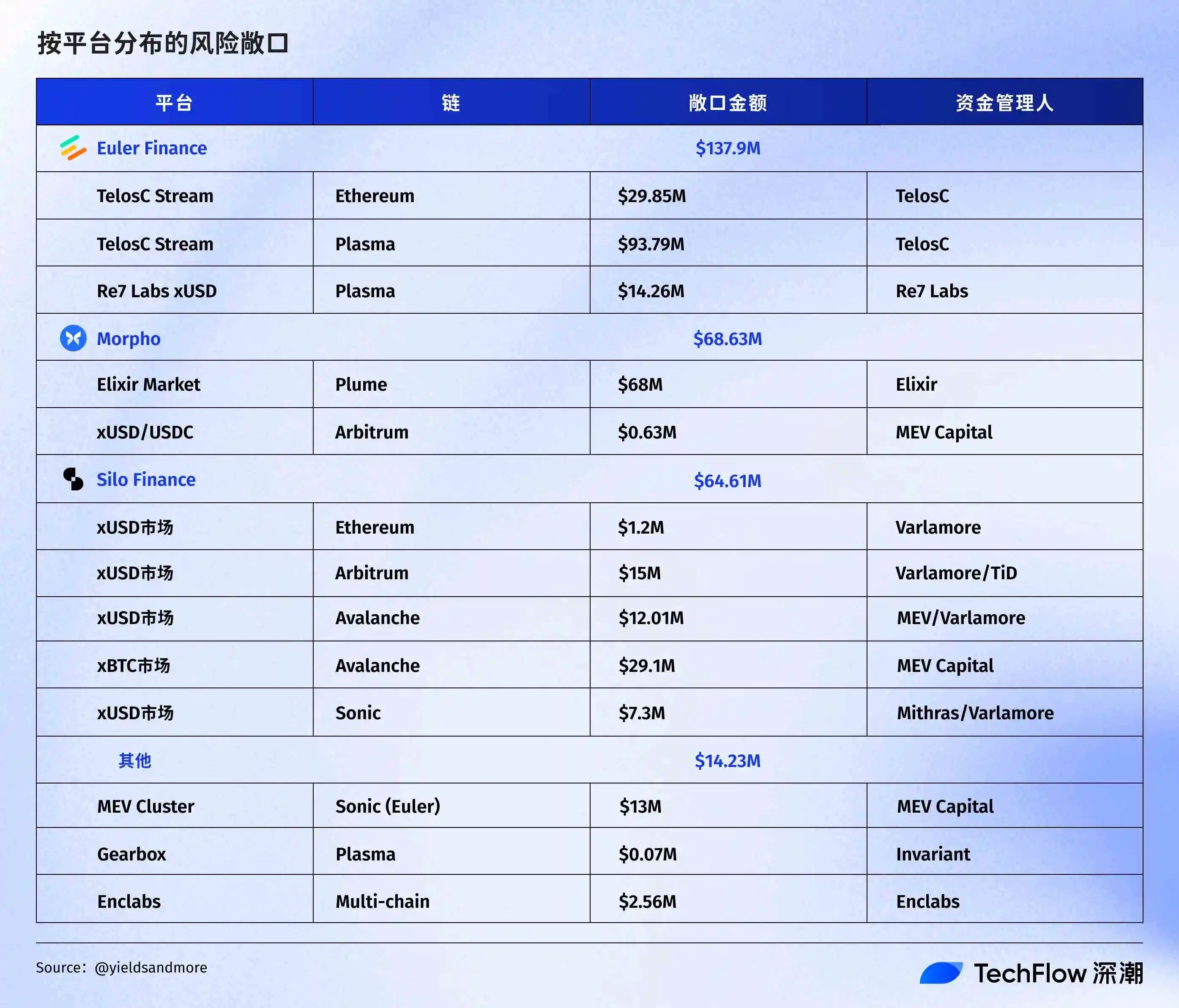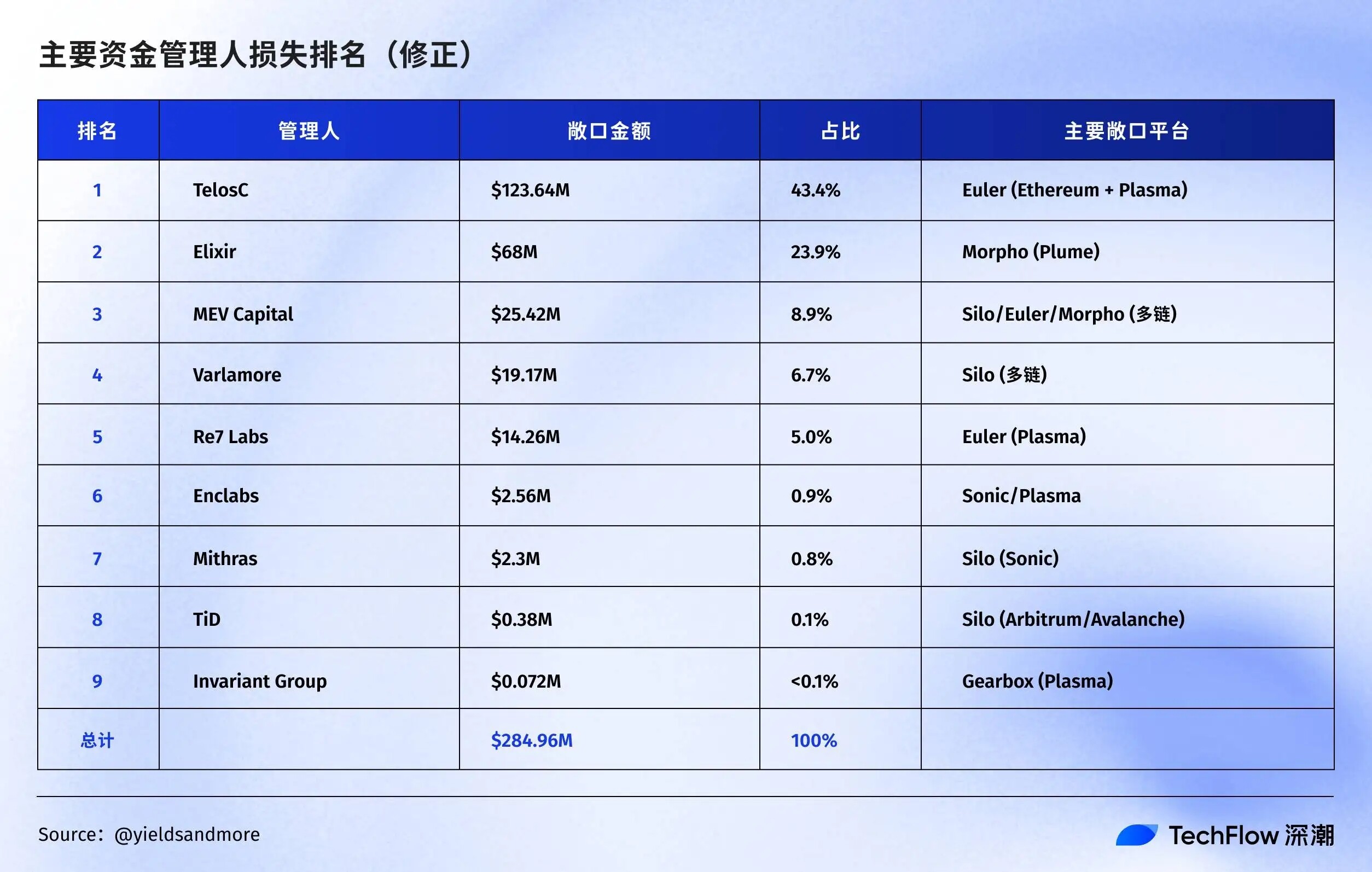Weekly Editor's Picks (November 1-7)
- 核心观点:加密市场面临流动性拐点与结构性机遇。
- 关键要素:
- 全球流动性周期见顶回落。
- 比特币或处最后一跌阶段。
- 隐私币因监管压力重获关注。
- 市场影响:短期波动加剧,长期布局窗口显现。
- 时效性标注:短期影响
"Weekly Editor's Picks" is a "functional" column of Odaily Planet Daily. In addition to covering a large amount of real-time information every week, Planet Daily also publishes a lot of high-quality in-depth analysis, but these may be hidden in the news feed and trending news, and you may miss them.
Therefore, every Saturday, our editorial team will select some high-quality articles worth reading and saving from the content published in the past 7 days, bringing new inspiration to you in the crypto world from the perspectives of data analysis, industry judgment, and opinion output.
Now, let's read it together:

Macro Market
Is global liquidity running out?
Compared to the previous administration, the U.S. Treasury is withdrawing liquidity through tariffs and spending restrictions. The global liquidity cycle is peaking and declining.
Why is the upcoming quantitative easing considered a bubble-making machine?
This round of quantitative easing is essentially equivalent to monetizing government debt, which is the fundamental difference between the current situation and the past. It appears to be riskier and more inflationary.
Bitcoin may be facing its "final plunge": a real-life scenario of liquidity tightening is unfolding.
As the Treasury restarts spending, TGA balances are expected to fall from their highs, with liquidity returning and risk appetite recovering. Bitcoin may be in the "final dip" phase of this correction—at the intersection of the resumption of fiscal spending and the start of a future interest rate cut cycle, a new liquidity cycle will also restart.
Why does Bitcoin only rise when the US government opens its doors?
In the long run, the global economy seems to be trapped in a cycle of debt-quantitative easing-bubbles from which it cannot extricate itself.
This crisis, unexpectedly triggered by the government shutdown, may just be the prelude to the next, even larger wave of liquidity.
The Quiet Period in the Crypto Market: Cyclical Turning Point and Structural Opportunities in 2025
The crypto market is currently in a consolidation phase, not a sign of impending collapse.
Investment and Entrepreneurship
No strategy is better than buying BTC.
Wall Street's calculations: What is the $500 million investment in Ripple for?
Through a series of acquisitions, Ripple's system capabilities have expanded from simple cross-border payments to a full-stack financial infrastructure encompassing "stablecoin issuance + institutional custody + cross-chain clearing".
Ripple is essentially a huge "digital asset treasury" with a compliance premium.
Ripple's story has become a classic financial story: about assets, valuation, and liquidity management.
Why are products in the crypto space so likely to fail to launch?
Some investors even pressure crypto founders to conform to current trends, while their teams begin evaluating investments in projects that have secured funding based on the season's hottest narratives. No one persists long enough to validate their work; instead, they adapt whenever they encounter resistance—slow user growth, difficulty raising funds.
The market punishes completed projects. This is because a finished product has known limitations, while a "nearing completion" product still possesses unlimited narrative potential. VCs don't invest in products; they invest in attention. Team and user attention spans are also extremely short.
Cryptocurrencies are difficult to build any long-term products because they are structurally at odds with long-term thinking.
Also recommended: " A compilation of crypto whale operations: Insiders lose $40 million weekly, followers suffer a bloodbath ", " The collapse of a 100% win rate whale with leverage: 21 days of gambling, 14-day winning streak ends, $44.67 million evaporates ", " Brother Machi's 'zeroing out' story ", " I traded perpetual contracts for a month, from fantasizing about getting rich to sobering up ".
privacy
Was buying ZEC a ploy to dump BTC? 4 industry truths behind the surge in privacy coins.
The privacy coin market is reigniting: the US government's seizure of $15 billion in BTC may be the direct trigger; celebrity endorsements and institutional support are helping privacy coins regain liquidity; privacy projects continue to develop and upgrade their technology.
A rise in privacy-related stocks is often a sign of a potential sell-off in BTC.
Functionally, it blocks transactions to achieve optional privacy; in terms of environment, the demand for privacy from the "rebel forces" under the shadow of regulation has surged; the expectation of halving and celebrity endorsements have ignited the scarcity narrative engine; in terms of contract structure, retail investors leave the market and market makers enter.
With a 20-fold increase in 3 months, is ZEC's "Bitcoin Silver" narrative tenable?
The main reasons for the rise in privacy narratives are: the "safe haven premium" under regulation, the grayscale effect of ZEC, and the common holdings of crypto version enthusiasts.
Will ZEC's shield pool balance continue to grow in the next 12-24 months? Will institutions allocate ZEC through compliant channels like Grayscale? Will regulatory pressure overwhelm ZEC or instead strengthen its scarcity? The answers to these questions will determine whether ZEC's "silver to Bitcoin" narrative holds true, and will also determine the sustainability and depth of this privacy coin rally.
Galaxy Research Report: What's driving Zcash's (the "doomsday car") price surge?
Transparent cryptocurrencies cannot survive under the harsh crackdown of governments.
Zcash's user experience has been improved (e.g., the Zashi wallet). Cross-chain intent channels lower the barrier to entry (NEAR Intents).
For the first time, over 30% of the ZEC supply is stored in a shielded liquidity pool. However, compared to Bitcoin, Zcash still has a very small number of full nodes.
Airdrop Opportunities and Interaction Guide
Points increase, but returns decrease; "long-term commitment" is less effective than "flash sales." Binance Alpha may never replicate the wealth-generating effect of September, but with strict discipline and controlled losses, there's still a chance to secure relatively stable profits.
Why Perp DEX airdrops are still important: Three projects you can't miss
edgeX, StandX, Lighter.
Experience the complete forecasting guide at Polymarket, Opinion, and Kalshi.
Also recommended: " A Step-by-Step Guide to Participating in Brevis Phase 2 ," " Circle's Own Stablecoin Public Chain Arc Testnet Interaction Guide ," " MSX Points Season S1 Full Guide: How to Obtain 'Double Alpha' Through RWA US Stock Trading ," and " Popular Interaction Collection | StandX's New Round of Earning Points Activities; Stable Testnet Guide (November 7th) ."
Meme
GIGGLE experiences a rollercoaster ride; whose responsibility is the BSC ecosystem crash?
Bitcoin ecosystem
Why do we still need Bitcoin 17 years later?
CeFi & DeFi
With Treasury Corporation starting to sell tokens, has the DAT craze reached a turning point?
When the market stops paying for stories, companies must regain trust through structure, strategy, and transparency.
CZ has started a position in ASTER. Will this move be able to challenge Hyperliquid's dominance?
CZ's investment in Aster is not a spur-of-the-moment decision, but a well-thought-out strategic move. His promotion of the stock is essentially a way to "drive traffic" to the BNB Chain ecosystem, increasing liquidity into BNB Chain and stimulating gas fees and DeFi activity.
The Perp DEX market is highly competitive, with Aster standing out due to its low fees, tokenized stocks, dark pool trading, and grid trading. But the real battle in derivatives is yet to come.
Game of Thrones: From Trump to CZ, why are billionaires betting on "prediction markets"?
This market has the potential to become an unprecedented information aggregation tool, allowing the "wisdom of the masses" to shine with unprecedented efficiency; or it may degenerate into a battleground of public opinion captured by huge capital and political power, allowing the "biggest wallet" to define what "truth" is.
The DeFi sector, which had a potential $8 billion risk, has only seen $100 million collapse so far.
More than $8 billion in real money is being managed by a large number of Curators from diverse backgrounds.
The reason traditional DeFi protocols are relatively secure is precisely because they minimize the influence of human factors. However, the Curator model of DeFi protocols brings the greatest and most unpredictable risk—human beings—back to the blockchain. When trust replaces code, and transparency becomes a black box, the very foundation of DeFi security collapses.
Transparency is far more important than the decentralized label itself.
Also recommended: " What is the Curator role in DeFi? Could it be a hidden mine in this cycle? " and " Prediction Market 2.0 Preview: 5 new product forms beyond 'pure gambling' ".
Safety


Also recommended: " In-depth analysis of the truth behind xUSD's de-anchoring: the domino crisis triggered by the October 11 crash ".
Weekly Hot Topics Intensive Review
The market declined over the past week; frequent security incidents triggered a chain reaction; Alpha Arena Season 1 ended , with Qwen overtaking Deepseek at the last minute to win the championship; nofi AI director: the next season of the "Cryptocurrency Trading Competition" plans to significantly optimize benchmark testing ( AI Cryptocurrency Trading Competition Summary );
In addition, regarding policy and macro markets, David Sacks reports that legislation on the cryptocurrency market structure has made substantial progress and a bipartisan draft bill may be released soon; Trump called for an end to the government shutdown and stated that the record highs in US stocks are just the beginning ; the White House stated that Trump underwent a serious and thorough review before signing the CZ pardon; Japan's Financial Services Agency will support the joint issuance of stablecoins by the three major banks to promote innovation in the payment sector; and Hong Kong will allow locally licensed virtual asset trading platforms to share global order books with their overseas affiliates to increase liquidity.
Regarding opinions and statements: Goldman Sachs: The US government shutdown could deal the most severe blow to the US economy in history ; Arthur Hayes: BTC and ZEC will rise after the US government shutdown ends; Bitwise: Bitcoin is close to "bottoming out," and institutional investors remain bullish; Wintermute's outlook: Fund inflows have stagnated, and the market has entered a zero-sum game phase ; Bitwise CIO: Retail investor sentiment is at "extreme despair," but the crypto winter has not yet arrived ; Matrixport: Bitcoin is approaching oversold territory, and the current price level is a good time to buy on dips ; Matrixport: The market may further decline, but this is not enough to indicate that the BTC rally is over ; Yi Lihua: ETH's fundamentals are sound , and gradually "buying the dip" is the best strategy; DeFiance Capital founder: The current market environment is comparable to 2018-2019, and survival is the only goal ; AllianceDAO co-founder QwQiao: Most smart traders have turned bearish , and market sentiment is becoming increasingly cautious;
Maelstrom co-founder angrily criticizes Pantera : LP investment made four years ago has nearly halved, while BTC has doubled in the same period; CZ: GIGGLE is not an official token issued by Giggle Academy ; He Yi: Giggle tokens will enter a deflationary mode in the future ; CZ: Every purchase is "trapped" ; CZ: Market fluctuations are irrelevant to me , tweets will not affect the market; CZ: I bought BNB in the first month of BNB TGE 8 years ago and have held it ever since;
Regarding institutions, large companies, and leading projects: Google Finance will integrate prediction market data from Kalshi and Polymarket; Gemini plans to enter the prediction market and has applied for a derivatives trading license; BNB Chain released the Fermi Hardfork version ; BNB Chain: the Fourier hard fork of the opBNB testnet is about to launch; MetaMask launched a rewards program , emphasizing its connection to but distinct from the future TGE; Pump.fun launched the Spotlight utility token support program; Jupiter has passed a proposal to " burn 130 million repurchased JUP "; ZKsync founders released a ZK token update proposal : all network revenue will be used to buy back and burn ZK tokens; Zcash (ZEC) developers released their 2025 Q4 roadmap, with the token rising 800% in the past month; KITE launched an airdrop query ; Aria announced its token economics : total supply 1 billion, with the community and ecosystem accounting for 61%; UnifAI announced its token economics model : total supply is 10 One billion tokens were allocated, with 13.33% distributed to the ecosystem and community; Timefun announced the closure of its creator token platform and its transformation into a new crypto social application;
In terms of data, yield stablecoins experienced the largest single-week outflow of funds since the Luna collapse, totaling $1 billion;
Regarding security: Stream Finance: Suspended deposits and withdrawals due to a $93 million asset loss; Balancer was attacked and subsequently released a preliminary report on the v2 vulnerability incident : a rounding logic error in bulk exchange transactions was exploited; XUSD further de-pegged , falling over 57% in 24 hours; after xUSD de-pegged, Euler's oracle data was not updated in a timely manner , potentially leading to bad debts; Yei Finance: The fastUSD market experienced anomalies, and the protocol was suspended , later stating that user funds are safe and can be withdrawn in full , and the team will repay all debts of the main pool; Notional will shut down the V3 protocol to address the bad debt risk caused by the Balancer attack; ether.fi officially stated that the liquidity vault is secure , and users can check the vault status and risk exposure at any time; Berachain: Coordinated a network suspension for an emergency hard fork to fix the Balancer V2-related vulnerability on BEX; Berachain: All funds stolen due to the vulnerability have been recovered, and the blockchain is now running again ; Garden Finance co-founders confirmed a loss of approximately $11 million due to the attack, but user funds were not affected ; Aave Founder: Immutable oracles and interest rate mechanisms may trigger systemic risks, and conflicts of interest among asset managers exacerbate hidden dangers in the industry ... Well, it's been another tumultuous week.
Link to the "Weekly Editor's Picks" series is attached .
See you next time~



